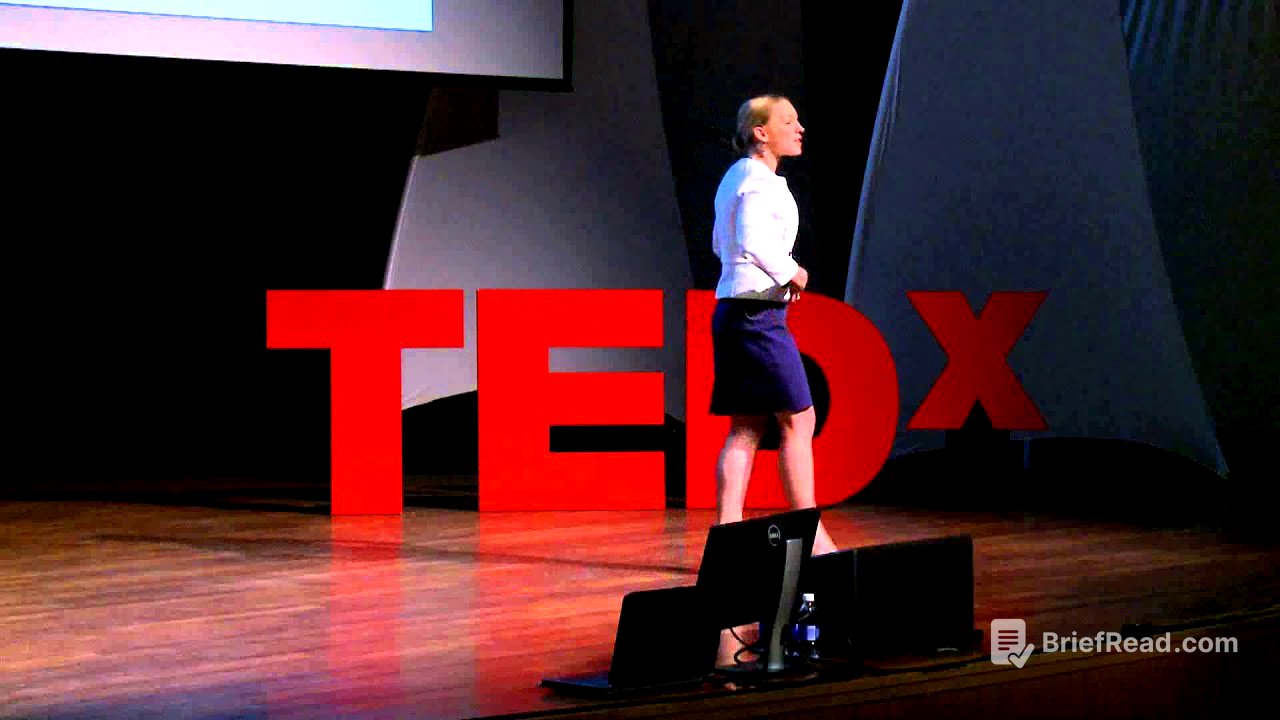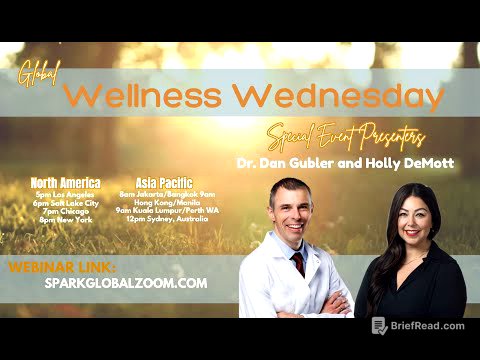TLDR;
This talk explores the profound impact of mindsets on various aspects of life, including health, well-being, and performance. It begins with an examination of the placebo effect, highlighting how our expectations can influence the effectiveness of medical treatments. The talk then presents studies on exercise, diet, and stress, demonstrating how our beliefs and attitudes can shape our physical and psychological responses. It concludes by encouraging the audience to recognize and reclaim the power of mindset to improve their lives.
- Mindsets significantly influence our health and well-being.
- The placebo effect demonstrates the mind's ability to recruit healing properties in the body.
- Changing mindsets can lead to measurable improvements in physical and psychological outcomes.
The Power of Mindsets: An Introduction [0:07]
The speaker introduces the concept of mindsets and their importance in various aspects of life. She begins by sharing a study by Dr. Fabrizio Benedetti on thoracic surgery patients, where the method of morphine administration affected pain relief. Patients who received morphine from a doctor experienced greater pain reduction compared to those who received it via a pre-programmed pump, even though the dosage was identical. This highlights the placebo effect, which isn't just about fake treatments but the mind's ability to trigger healing responses.
Understanding the Placebo Effect [2:35]
The speaker explains that the placebo effect is a powerful demonstration of how our expectations can influence our body's healing processes. A mindset is defined as a lens through which we view the world, simplifying interpretations at any given moment. These mindsets play a significant role in determining our health and well-being.
Mindsets and Exercise: The Hotel Housekeepers Study [4:07]
The speaker discusses a study with hotel housekeepers to investigate the impact of mindset on exercise benefits. These women performed physically demanding work but didn't perceive it as exercise. Researchers informed one group that their work met the Surgeon General's requirements for physical activity. After four weeks, this group showed improvements in weight, blood pressure, body fat, and job satisfaction, suggesting that changing their mindset about their work influenced their physical health.
Mindsets and Diet: The Milkshake Study [7:46]
To test the direct connection between mindsets and bodies, a study involving milkshakes was conducted. Participants were given two milkshakes labeled as either "sensible" or "indulgent," but both were identical. The participants' ghrelin levels, a hormone related to hunger, dropped more significantly after consuming the shake labeled "indulgent." This suggests that our beliefs about the food we eat can influence our body's physiological response, beyond just calories and nutrients.
Mindsets and Stress: The Video Clip Experiment [11:34]
The speaker explores the mindset about stress and its impact. Participants were shown video clips presenting stress as either debilitating or enhancing. Those who viewed stress as enhancing reported fewer negative health symptoms and higher work engagement. This indicates that our mindset about stress can influence our body's response to it.
Broader Implications and Conclusion [15:50]
The speaker references research by Carol Dweck on intelligence, Becca Levy on aging, and Ted Kaptchuk on placebo effects, all highlighting the power of mindsets. While acknowledging the importance of medicine, exercise, and diet, she emphasizes that our mindsets significantly influence their effects. She concludes by encouraging the audience to recognize and reclaim the power of mindset to improve their lives.









